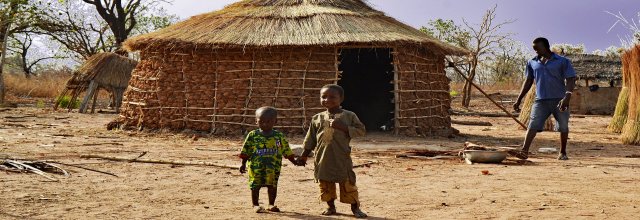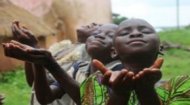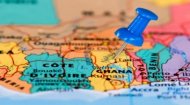|
Ghana Profile |
Ghana Profile |
Ghana Profile | Ghana Profile |

|
Today Ghana is generally considered a relatively stable country, especially compared to many of its West African neighbors, however, this stability is facing current challenges, including economic difficulties like high public debt and inflation, rising unemployment, and growing discontent among the populace, particularly the youth. While the country's democratic institutions are considered robust, underlying issues of corruption and socioeconomic disparities are eroding trust and could temporarily disrupt public order. Ghana's economic profile is predominantly driven by agriculture, mining, and services. The country is a significant producer of cocoa, gold, and oil, which contribute significantly to its export earnings. The agricultural sector employs about 40% of the population and accounts for approximately 20% of the country's GDP. In recent years, Ghana has witnessed impressive economic growth, with an average annual growth rate of around 6% between 2010 and 2019. This growth has been attributed to increased investments in infrastructure, improved governance, and a stable macroeconomic environment. However, the COVID-19 pandemic has significantly impacted Ghana's economy, leading to a decline in growth rates and increased unemployment. As such, poverty remains an issue with 27% of the urban population living below the poverty line however this figure rises rapidly to 64.6% as you progress into the north of the country particularly the Rural Savannah and Rural Forests areas. Much of this is down to due to a short rainy season that barely allows for subsistence farming leading to malnutrition amongst many children who live there. Ghana has a diverse population of approximately 35.06 million (2025) with over 100 ethnic groups. The largest ethnic groups include the Akan, Mole-Dagbon, Ewe, and Ga-Dangme. Ghana's official language is English, but various local languages, such as Twi, Ga, and Ewe, are widely spoken. The country has made significant progress in improving its social indicators, with increased access to education, healthcare, and other social services. However, challenges such as poverty, income inequality, and unemployment remain significant concerns. Literacy rates are high at 80.38% rising to 85.86% for young people, close to the global literacy rate for all people aged 15 and above at 86.3%. In Ghana, the estimated adult HIV prevalence rate is around 1.7%. This translates to roughly 361,897 people living with HIV in 2020, the latest year figures are available. While Ghana has made progress, the prevalence rate remains a public health concern. Ghana is in 143rd place out of 193 countries and territories in 2025 when ranked in terms of life expectancy, literacy, access to knowledge and the living standards of a country. Ghana's rich cultural heritage is reflected in its diverse traditions, music, dance, and cuisine. The country is known for its vibrant festivals, such as the Akwasidae and Homowo festivals, which celebrate the history, culture, and achievements of the various ethnic groups. Ghanaian music is characterised by a blend of traditional rhythms and modern influences, with popular genres including highlife, hiplife, and gospel. The country's cuisine is equally diverse, with popular dishes such as jollof rice, fufu, and banku. Ghana's daily life is shaped by its diverse social and cultural fabric. The country's urban centres, such as Accra and Kumasi, are characterised by a bustling atmosphere, with markets, shops, and restaurants catering to the needs of the population. In rural areas, daily life revolves around agriculture, with farmers engaging in various farming activities, such as planting and harvesting crops. Education is highly valued in Ghana, with parents investing in their children's education to ensure a better future.
|










